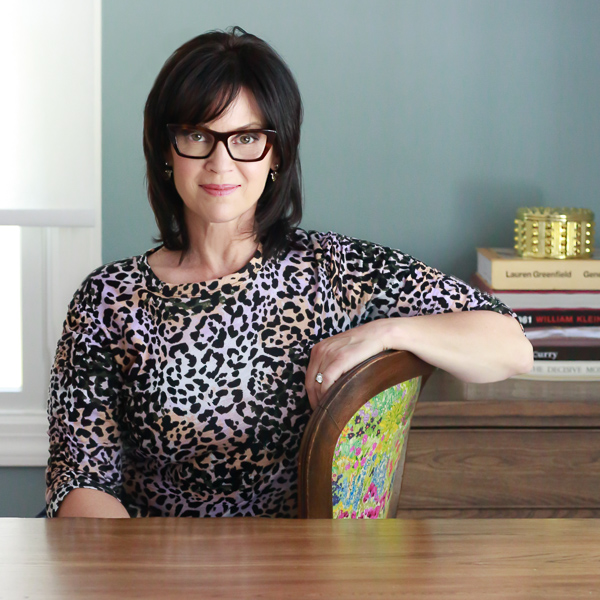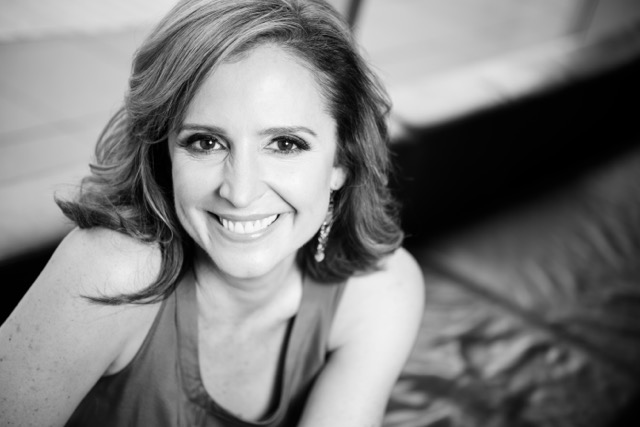Working with thought leaders on shaping their speaking platform is an incredible privilege. One of my speakers, Michelle Arpin Begina, is sharing her very personal story about growing up with spendthrift parents so that she can help people remove their shame around money and begin to step into a life of bold ambition they desire.
Tricia: What is your backstory? Why did you get into helping people with their money?
Michelle: Until his retirement, my Father was a third generation owner of a very successful business. The family business dates back 100 years. You would think that would instill security, but because my father had a gambling problem and was a spendthrift, we lived rich as often as we lived poor.
Imagine raised hairs on the back of the neck as a chronic condition and you’ll begin to understand what it felt like growing up.
By anyone’s standards we “lived large” and what no one knew was even though we owned a Cessna and a Jaguar and a Yacht (a Corvette and an Acura, a TransAm and a Pontiac Bonneville) we walked a financial tightrope without a safety net.
My folks spent everything they made.
We lived within an inch of bouncing checks and having our house foreclosed on. To put it politely, the situation was always financially precarious.
My parents’ conflicts over money were always in the air; their issues spilled over into every other area of life and onto me at ages that were too tender for me to process.
Call it what you will, morbid curiosity or post traumatic stress, money was always on my mind and so was a deep yearning to feel safe. Curiosity led to a profession of literally helping others “find a better way”. And, in the process, I’ve created the safety and security for myself that I craved as a child and have helped others do the same.
Tricia: Why are you so passionate about sharing your insights and gifts around money with people and women especially?
Michelle: One of our biggest fears is not having enough and running out of money. Despite the trappings of wealth growing up my childhood was impoverished. My parents made more than enough and sadly spent their prosperity. The worst part of my childhood was feeling powerless over how we lived and being conscious that much of the stress and insecurity was made by hand.
Not having enough feels worse than we imagine. What I’m up to in the world is to help people get set for life, as they define that, so they never have to experience what I once did.
Back in the day we didn’t have the insights into the money psyche that we have now. My parents were smart and capable (and exceptionally good looking) and tried to fill an insatiable void with things; never understanding behind all of the behaviors were answers from within.
Women don’t always feel as in-charge and confident with money as they do in other areas of their life. They may have been told growing up they weren’t good at math or that money is a man’s domain or a million other things that left their mark.
Contrary to popular belief and for women especially, how we do one thing is not necessarily how we do everything. Our relationship with money has nothing to do with the amount that we have and everything to do with the unintended consequences we may create when we’re unaware of this relationship.
We’re all human and need to be heard. Since most of the conversations we have about money are in our mind, giving voice to our thoughts and telling our stories helps us process, to question and even change our minds.
Once we believe differently, we can behave differently and become more ourselves which is the path to reach our potential.
Tricia: Why do so many people have money hangups?
Michelle: It’s hard to identify the exact chemistry that makes one person so different from another when it comes to money issues. Not everyone is hung up; most have a touch of something though. We grow up and accept the money identities that we were given as children. Subconsciously we adopt our role models’ money beliefs; which drive our behavior.
Trouble may set in when our adult behavior is out of sync with what we need to do to get what we want.
The truth of money is the “soft side” is where the hard work begins. Like every other area of life we need to understand what we’re made of and where that comes from in order to make something of oursleves. Being wealthy and feeling wealthy are separate and distinct thresholds. To fully enjoy our lives and enrich others’ lives we have to unify our status with our state and that requires us to become our whole selves.
Our systems lead us to believe that knowledge and experience are everything we need to get ahead. The dirty little secret is this is not enough to transcend our beliefs and ultimately our financial circumstances. Doing that requires us to layer on the insight, motivation and inspiration that only comes from exploring within.
Tricia: How is money directly related to our soul’s work or purpose?
Michelle: Money is a great enabler!
Our choices with it can touch our soul and light a path to fulfilling our purpose.
Whether we like it or not, money is a part of every aspect of our life. It’s a force and a tool to help us accomplish important things in life. We exchange money for time. We exchange money for experiences or things and we give it to enable others who don’t have it so they can move further along their life path.
Again, is not about the amount that we have. Simple acts of generosity may unite our soul to others and give us meaning and purpose in the process. We may value work that positively impacts people more than any material rewards we may or may not receive.
Tricia: What is the biggest mistake people make in relationship to money?
Michelle: The biggest mistake is not understanding that we have a relationship with money!
Some others are that we have blind spots which limit our capacity to see issues and/or objectivity assess our capabilities.
We may also hold ourselves back because our feelings about money are too intense for us to face.
We may never face our insecurities about money and become dependent on others and never fully develop our potential. We may delay retirement or limit our joy when we do because we feel guilty about having enough when others don’t. We may buy more than we can afford to show the world that we are somebody.
People also fail to recognize their own “success formula” and how they may be able to repurpose and apply it to their relationship with money.
The woman who is unapologetic about her value at the office may not necessarily bring that same confidence home with her. She likely trained to be competent and developed specialized skills. She gained confidence through experience and her results solidify her in her sense of worth. All of this is transferable to the realm of money.
Tricia: Based on your years of experience and expertise, what’s the one thing people can do today to improve their relationship with money and what will the outcome be?
Michelle: Assessing your state of mind and knowing the state you want to transition to is a powerful starting point.
Women often feel insecure, timid or incapable and aspire to be in control and financially empowered. They want to be wealthy and feel wealthy at the same time.
The value is in the emotional journey.
A woman’s competence and confidence comes from the emotional journey of moving from one’s current state of mind to a preferred state of being.
Tricia: What’s the one thing vowed to do differently from your parents around money?
Michelle: Given my backstory, money is no object when it comes to college education for my sons.
Tricia: Why do you want to speak on big stages about this?
Michelle: Misunderstanding, neglecting or being unaware of our relationship with money is damaging to us and to our children. A parent who abuses money, just like alcohol or drugs, cannot take proper care of themselves or their children. The children are then predisposed to repeat what’s familiar.
The working poor is not limited only to those who don’t make enough to get by. There is a major part of our population that has confused income with wealth, has traded today for tomorrow and uses money to self-medicate.
We need to wake up to the underground story that exists all around us.
There is a poverty of prosperity that afflicts many of the best and brightest in our country. These folks are literally robbing themselves and their children of their futures.
Poverty of prosperity is the affliction of earning more than enough and not getting ahead.
Speaking on stage allows me to give others the part of me that wasn’t able to help my parents transcend their money beliefs.
Had they understood their own relationship with money and the dynamic that created as a couple there would have been less nail biting and more laughter (not to mention money in the bank).
Transcending money beliefs cycles through knowing what wealth and being good with money means individually. It’s moving beyond limiting beliefs and attaching yourself to something that lifts you out of your circumstances that inspires action to realize your boldest ambitions. Who we are, how we relate to others, making a difference and aligning our values with our money leads to less worry, more satisfaction and inner peace.
In addition to supporting people in moving beyond the unintended consequences of their relationship to money, Michelle teaches people how to be “Good With Money”, in her group online program. Over the last year, Michelle has worked closely with Erika Leak, English Language Arts and Literacy Coordinator in the New Jersey Department of Education to adopt a new resolution for the 2021 calendar school year, which ultimately revises the New Jersey Student Learning Standards to include behavioral finance as a requirement.


